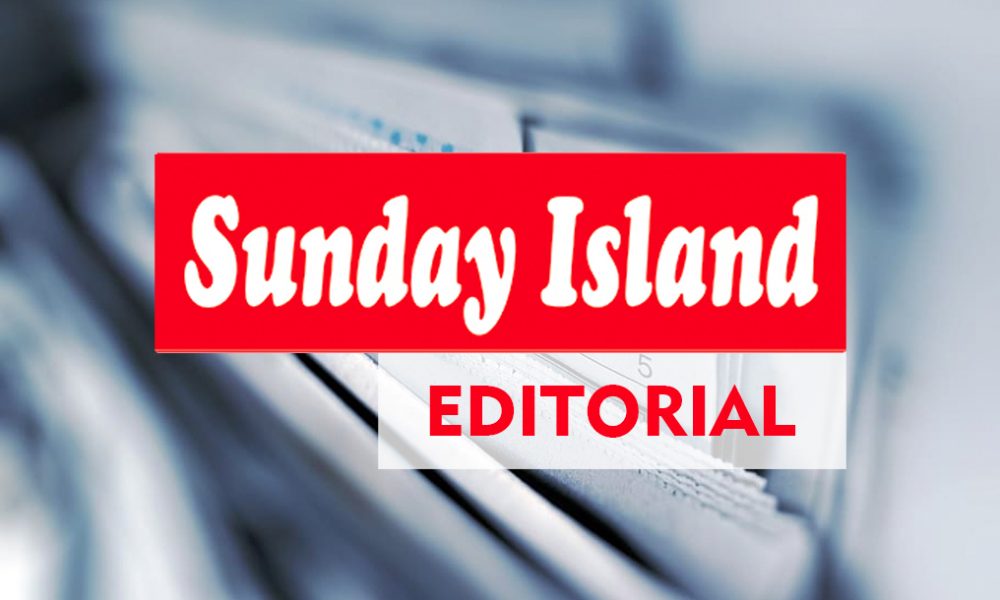Editorial
More heavy lifting to be done

As President Ranil Wickremesinghe tirelessly stressed, the signing off on the Extended Fund Facility (EFF) with the International Monetary Fund marks a new beginning. “Forget the past and the old games,” he has said seeking the cooperation of both the opposition and the media for a great leap forward. He has made the point that the IMF arrangement of USD 2.9 billion opens the doors for further credit adding up to USD 7 billion from elsewhere. When he met editors and other media heads on Thursday he said we have to continue negotiations with bilateral and multi-lateral lenders as well as private creditors which he admitted would be the most difficult.
The bad news when this was being written on Friday was that unless there is a dramatic change of heart on the part of the executive, the likelihood of the scheduled local government elections in the foreseeable future appears more than remote. There are, of course, a clutch of cases before the courts at present and which way the determinations will go is not clear right now; also in which direction the dice will roll once the courts rule. But it is patently clear that both the president and the government want these elections as much as they want a hole in the head.
There is no need to labour the reason why the incumbent establishment does not want local elections at the present moment. This, notwithstanding SLPP General Secretary Sagara Kariyawasam’s mealy-mouthed protestations that his party does not wish these elections put off. The electorate is very well aware that these elections cannot mean a change of government. Wickremesinghe is safely ensconced on his presidential throne until Gotabaya Rajapaksa’s term runs out in November 2024. Wickremesinghe is constitutionally empowered to dissolve parliament whenever he wishes from now until then. That’s the whip-hand he holds over his SLPP backers who made him president. It will safely ensure that they will not rock the boat during his tenure.
Just as much as the president and his government do not want any election in the short term, the opposition parties are literally panting that these be held soonest for reasons that are all too obvious. The last time the country elected local bodies was in February 2018 and the Rajapaksa party was the comfortable winner. The credit for this within the SLPP was widely apportioned to Basil Rajapaksa, its national organizer. That election victory heralded the coming of Gotabaya Rajapaksa in November 2019 and the Mahinda Rajapaksa government the following August. This is why the opposition, principally Sajith Premadasa’s SJB and the JVP-led National People’s Power (NPP), is striving might and main to have this election one way or another. The present signal is that they will not succeed in this endeavour. But as in cricket, there is no certainty in the outcome.
Though the president requested that the old games must not be played any longer, his supporters don’t practice what he preaches. There was a vulgar display of firecracker lighting, in true Sri Lankan style, greeting the announcement that the IMF deal was through. Everybody and his brother well know that this polluting lighting of strings of firecrackers greeting election results, politicians arriving at meetings and other similar events are funded by the politicians themselves. Some ghouls even lit crackers when President Premadasa was assassinated. We don’t know whether last week’s cracker lighting was a command performance or of old habits persisting. Whatever it was, it was unseemly.
The mere fact the IMF deal is through does not mean that the country is going to emerge from the economic morass in which it is mired. A great deal of heavy lifting remains to be done. The initial benefits cannot be more than a trickle. Possibly the June negotiations down the road may be an opportunity to offer some tax relief to professionals loudly protesting that the new rates are totally unrealistic. We run a letter from a retired Commissioner General of Inland Revenue in this issue who says that in his view, the problem is not with the rate of taxation which is between six and 36% but with the exemption threshold.
He rightly says that given today’s hyper-inflation. high cost of electricity, water and essential food, the Rs. 1.2 million exemption threshold is far too low. He believes that if this is raised to at least Rs. 1.8 million a year, it may be possible to win the unions over and reduce the tax burden on high income professionals. He has said this should not impact on the IMF agreements and the time has come for a compromise between the government and protesters. Clearly the now retired writer will not have access to actual numbers. But given his long service in the tax department, he would have an instinct for these matters.
It is also pertinent to say here that it is time the government makes a statement about the safety of the country’s banking sector. There are many worries on this score particularly after what happened recently in the U.S. and in Switzerland. It is well known that our state banks have been captive lenders to insolvent state-owned enterprises with such loans underwritten by the government. The fact that the IMF deal was successfully concluded, no doubt, is a reassuring factor about the stability of our commercial banking system. Nevertheless, a statement from the government will reassure constituents.